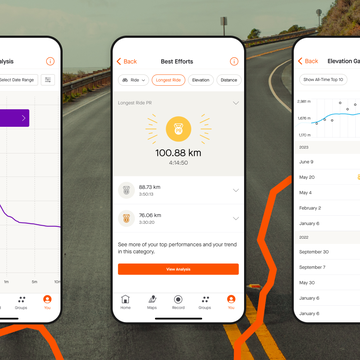The idea that most of us take more risks while wearing safety gear seems intuitive. Put on a helmet, and you’re ready to bomb trails on your 29er knowing you’ve done everything you can to keep yourself safe. Put on just a cycling cap, and you’re likely to pump the brakes before hitting that tricky corner.
But a new study takes the idea that we tailor risk-taking to perceived safety a step further. Researchers at the University of Bath studied whether wearing a bike helmet affected risk-taking in 80 participants who weren’t even biking: They were playing an animated game that involved gambling on how high a balloon can be inflated without bursting.
The participants—many of whom ride bikes—were divided into two groups: Half wore a bike helmet to play the game, and half wore a cap. Both types of headgear were outfitted with eye trackers to mislead the participants about what was being measured.
RELATED: The Coolest New Helmets for 2016
The results showed that wearing a helmet was associated with higher risk-taking scores than wearing a cap, even though the helmet had no effect on the relative risk of over-inflating the animated balloon. The researchers think this could be an effect of social priming, which is interesting considering both the cyclists and non-cyclists in the study produced similar results—both took higher risks during the game while wearing a helmet.
Helmets, in this case, provide some kind of blanket assurance of safety. The researchers suggest these findings show that safety equipment can have unintended consequences.
“The idea that people might take more risks when wearing safety equipment designed to protect against those risks has a considerable, although not uncontroversial, history,” they wrote in their paper. “If this laboratory demonstration of globally increased risk-taking arising from localized protection were to be replicated in real settings, this could suggest that people using protective equipment against specific hazards might also be unduly inclined to take risks that such protective equipment cannot reasonably be expected to guard against.”
While this doesn’t mean the presence of a helmet cancels out its intended safety benefits, it’s a good reminder to ride safely and to never assume you have risk immunity, helmeted or otherwise.













